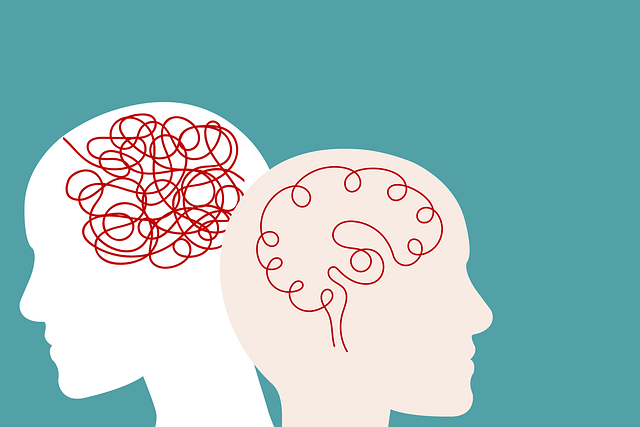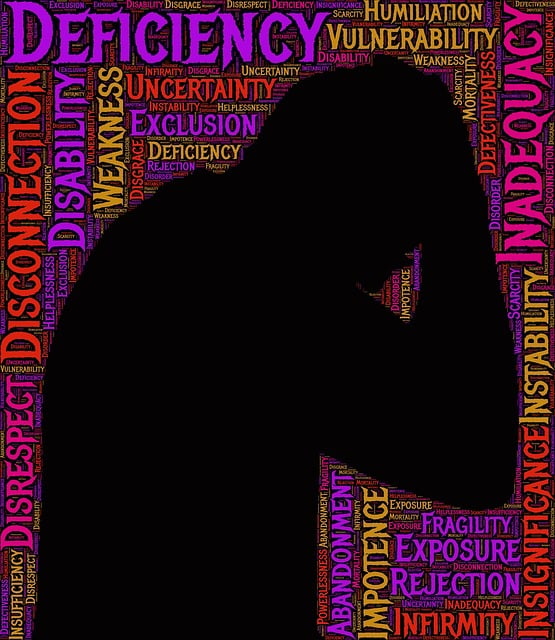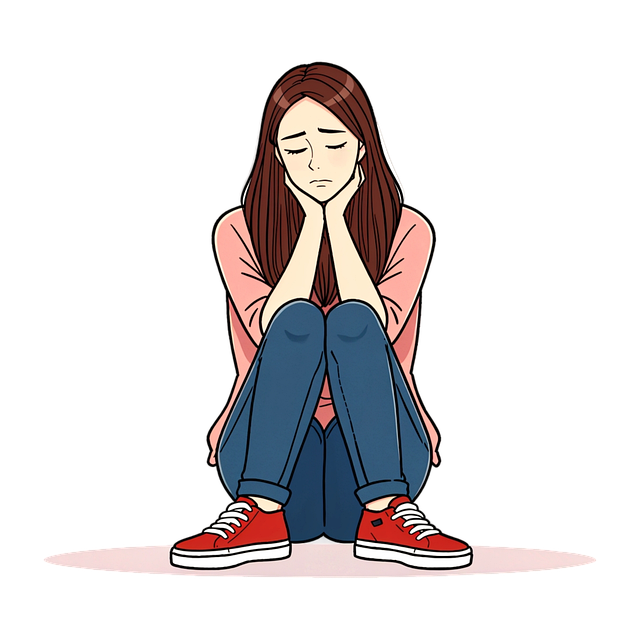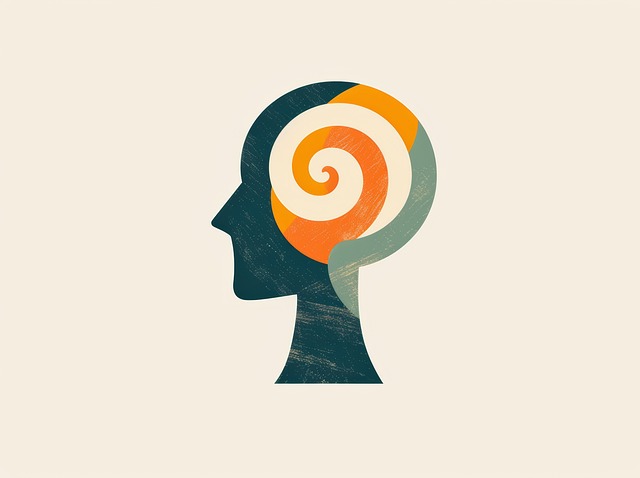Anxiety, a common yet complex emotion causing physical and mental distress, can be effectively managed through Castle Rock Online Therapy. This digital platform offers accessible support by employing evidence-based techniques such as CBT, mindfulness, and relaxation exercises to address its root causes. Early intervention is emphasized, especially through online sessions, removing geographical barriers for convenient therapy from home. The therapy focuses on thought patterns, emotion regulation, and lifestyle adjustments like exercise and nutrition to improve mental wellness, making it a powerful tool for managing anxiety disorders.
Anxiety can be a pervasive force in our lives, but managing it doesn’t have to be daunting. In this comprehensive guide, we explore effective techniques to help you overcome anxiety and find inner peace. From recognizing the subtle signs and understanding its root causes to leveraging powerful tools like Cognitive Behavioral Therapy (CBT) and mindfulness practices, we provide insights backed by Castle Rock online therapy’s success. Additionally, discover how lifestyle changes, including exercise, diet, and sleep, can significantly impact your mental health.
- Understanding Anxiety: Recognizing the Signs and Causes
- The Benefits of Online Therapy for Anxiety Management
- Cognitive Behavioral Therapy (CBT): A Powerful Tool for Overcoming Anxiety
- Mindfulness and Meditation Techniques to Calm Your Mind
- Lifestyle Changes: Exercise, Diet, and Sleep for Better Mental Health
Understanding Anxiety: Recognizing the Signs and Causes

Anxiety is a common yet complex emotional state that can significantly impact an individual’s daily life. Understanding anxiety involves recognizing its various signs and symptoms, which range from physical sensations to behavioral changes. Individuals experiencing anxiety may feel a constant sense of worry, fear, or unease, often accompanied by increased heart rate, rapid breathing, and muscle tension. These physical manifestations can be triggered by stressful situations or even minor concerns, causing individuals to feel overwhelmed and trapped in a cycle of negative thoughts.
The causes of anxiety are multifaceted, including genetic predisposition, environmental factors, and underlying mental health conditions. Castle Rock Online Therapy offers accessible support for those seeking to manage their anxiety. By addressing the root causes, whether it’s a past traumatic event, excessive stress at work, or social phobia, therapy can be instrumental in developing effective coping strategies. Incorporating techniques like mindfulness, cognitive-behavioral therapy (CBT), and relaxation exercises not only aids in anxiety prevention but also boosts confidence and overall mental health, as supported by Mental Health Policy Analysis and Advocacy. Additionally, Depression Prevention initiatives emphasize the importance of early intervention to mitigate the risk of anxiety escalating into more severe conditions.
The Benefits of Online Therapy for Anxiety Management

In today’s digital era, Castle Rock Online Therapy offers a convenient and accessible solution for managing anxiety. This form of therapy removes geographical barriers, allowing individuals to receive professional support from the comfort of their homes. With video conferencing tools, clients can engage in therapeutic sessions with licensed professionals, fostering a safe and confidential environment for open communication. Online therapy is particularly beneficial for those who may face challenges attending in-person sessions due to time constraints, transportation issues, or even social anxiety. It provides an alternative approach that encourages consistent participation in anxiety management techniques.
The Mental Wellness Podcast Series Production has also adapted to this digital trend, offering valuable resources and insights into various aspects of mental health, including anxiety. Through these platforms, individuals can access a wealth of information on mood management and stress management workshops, enhancing their understanding of self-care practices. Online therapy and associated resources like podcasts and workshops contribute to an individual’s overall mental wellness by equipping them with the necessary tools to navigate and overcome anxiety in their daily lives.
Cognitive Behavioral Therapy (CBT): A Powerful Tool for Overcoming Anxiety

Cognitive Behavioral Therapy (CBT) is a highly effective approach to managing anxiety, and it’s easily accessible through Castle Rock Online Therapy. CBT focuses on identifying and changing negative thought patterns that contribute to anxious feelings. By challenging distorted thoughts and replacing them with more realistic and positive ones, individuals can significantly reduce their anxiety levels. This therapy also empowers patients to develop coping skills for stress management, enhancing their overall mood regulation.
Through CBT, people learn to understand the connection between thoughts, emotions, and behaviors, which is crucial for navigating anxious situations effectively. The emotional healing processes involved in CBT enable clients to reframe their perspectives, leading to better mental health outcomes. This evidence-based method has proven successful in treating various anxiety disorders, offering a practical and long-lasting solution for those seeking to overcome their anxiety with the support of Castle Rock Online Therapy.
Mindfulness and Meditation Techniques to Calm Your Mind

Anxiety can often stem from a restless and wandering mind, so training yourself to be present is a powerful tool in Castle Rock online therapy. Mindfulness and meditation practices have been shown to significantly reduce anxiety symptoms and promote emotional well-being promotion techniques. By focusing on the here and now, these techniques help individuals quiet their inner critic and cultivate a sense of calm.
One simple yet effective method is to start with just five minutes of meditation each day. You can use guided meditations available through online therapy platforms or apps to help you learn and maintain a regular practice. Breathing exercises, such as deep abdominal breathing or mindfulness of breath, are also powerful tools for calming the mind. Incorporating these practices into your daily routine, alongside Trauma Support Services and Mental Wellness Coaching Programs Development, can lead to lasting improvements in mental wellness coaching programs development and overall emotional well-being.
Lifestyle Changes: Exercise, Diet, and Sleep for Better Mental Health

Anxiety management begins with fundamental lifestyle adjustments that have a profound impact on mental health. Regular exercise is a powerful tool against anxiety, releasing endorphins and reducing stress hormones. Incorporating physical activity into your routine can be as simple as taking a walk in nature or joining a local fitness class.
Nutrition also plays a significant role in managing anxiety. A balanced diet rich in omega-3 fatty acids, vitamins B and D, and magnesium can improve mood and cognitive function. Reducing caffeine and sugar intake can help stabilize energy levels and mitigate anxious feelings. Castle Rock Online Therapy offers Trauma Support Services tailored to address underlying issues contributing to anxiety. Additionally, prioritizing quality sleep is essential for mental wellness, with consistent rest promoting better emotional regulation and overall mental health awareness. The Mental Wellness Podcast Series Production provides valuable insights into these topics, highlighting the interconnectedness of lifestyle choices and mental health.
Anxiety management is a journey that requires understanding, patience, and the right tools. By recognizing signs, exploring evidence-based treatments like cognitive behavioral therapy (CBT), integrating mindfulness practices, and adopting healthy lifestyle changes, individuals can effectively navigate and overcome anxiety. Castle Rock online therapy offers accessible and convenient support for those seeking relief from anxiety’s grip. Embracing these techniques empowers individuals to reclaim their lives and foster lasting mental well-being.













